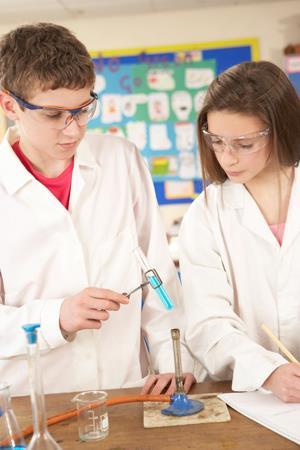Roadmap for radically transforming the UK education system includes new baccalaureate, teacher CPD and independent curricula bodies
The Royal Society has a vision for UK education for the next 20 years that calls for a broader learning experience for all students up to the age of 18, in which science and mathematics play a leading role, in a system that raises the professional status of teachers and is not subject to continuous change determined by the political cycle.
Last week the Royal Society published Vision for science and mathematics education, which was drawn up by a committee of high-ranking scientists, headteachers and educationalists, and chaired by Martin Taylor of the University of Oxford. Over the past two years, the committee has consulted widely and taken evidence from research to draw up a roadmap for radically transforming the UK education system. The curriculum, assessment, accountability measures and teacher professionalism are key areas marked for change.
Speaking at the launch of the report, Martin said, 'We believe the current education system will not meet the needs of the UK over the next 20 years so we need to start building a stable system now.' The reforms focus unashamedly, he said, on science and mathematics because these subjects are essential to the future of all young people and they also support the nation's aspirations to achieve prosperity and a more equitable society.
The UK has a remarkably strong science base, he said, but there are problems that need to be addressed if we are to retain an international competitive workforce. The Royal Academy of Engineering estimates that one million new science, engineering and technology professionals will be required in the UK by 2020. However Martin said that we are falling 40,000 shy of this figure each year, and with only one in eight 16-year olds going onto study maths at A-level, this is just not enough for a vibrant, knowledge-based economy.
A new baccalaureate

The Royal Society wants all young people to study mathematics and science up to the age of 18 alongside the arts and humanities. The report recommends a new baccalaureate-style framework that embraces both academic and vocational learning. Within 10 years high quality technical and academic course would be part of the new curricula and respected equally. Mathematics and science courses, for 5–18-year olds, would have an increased emphasis on practical work and problem-solving and would cater for students with different abilities and levels of interest. The study of English from 16 to 18 will also be important so that students can hone essential literacy and employability skills.
'The country's future prosperity depends on teachers' ability to inspire and guide, yet we don't adequately support and recognise them', said Martin. The report recommends, therefore, that subject-specific professional development is a core requirement for the profession and should be mandatory for career progression. All teachers should also hold or be working towards a teaching qualification to ensure they are experts in teaching as well as in their subjects. Committee member, John Holman explained, 'If we were to put a blanket requirement that everyone must have a teaching qualification before they teach, this would exacerbate the current shortage of teachers in maths and in the physical sciences. And we need to explore every possible avenue to get people into teaching.' The committee calls for a long-term commitment from government to fund national infrastructures to provide subject specific professional development for all science, technology, engineering and mathematics (STEM) teachers and technicians.
Teacher assessment
In addition, the report recommends that teachers are more involved in external assessments. The committee agrees there needs to be a 'direction of travel', from the situation as it stands now where teachers are not trusted to conduct high-stakes assessments, to one where teacher assessment is trusted and respected by parents, the public and employers. John pointed out that 'in most other countries in the western world, assessments by teachers are uncontroversial and have the public's trust, and that's where we need to be.'
The report recommends that new independent bodies are established within the next five years to take responsibility for the curricula and their assessment in order to bring long-term stability to the system. The committee agrees that there have been too many changes in recent years that have resulted in teachers feeling disempowered and disillusioned. The committee proposes that the scientific and engineering professional organisations, including the Royal Society of Chemistry, should work together with the wider science and mathematics education community to provide the foundation on which to base the independent bodies.
'It is our intention that this report will stimulate a professional debate on the purpose of education in our society, crucially how best to serve the needs of all young people now and in the future,' concluded Martin. And through this dialogue will come the detail that will translate the vision into practice.









No comments yet